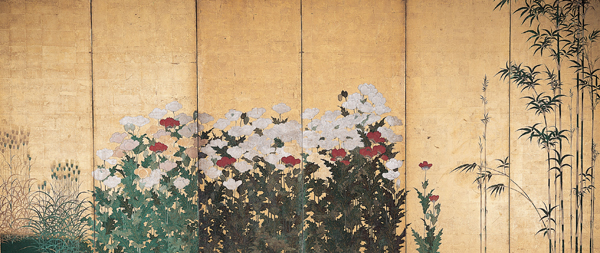Simply Enough
Rebecca Spears
 When you harvest the crops of your land, do not harvest the grain along the edges of your fields, and do not pick up what the harvesters drop.
—Leviticus 19:9
When you harvest the crops of your land, do not harvest the grain along the edges of your fields, and do not pick up what the harvesters drop.
—Leviticus 19:9
At first, it’s frightening to say “Enough is enough,” but after a while it gets easier. These are words that we say mainly when we are frustrated or angry; they sound like a threat. But really, when I stop to think about everything I have—what I need, what I want—I’ve discovered that I have enough—food, clothing, furniture, a satisfying job, nights out, and hair products. At first, it may feel like denial, and who wants to deny themselves?
Saying enough, lets me look at what I do have. I have a son and two daughters, I have two grandchildren. That makes me happy. I love them. I like to write, and I get plenty of opportunities to do that. For a long time after my divorce, I flirted, I dated, I considered another long-term relationship. Now for over a year, I have been decidedly single. This state of being has felt like a blip in my life at times, and like desolation at other times. But then I have simply enough of everything else in my life—and that makes me feel pretty content with my lot in life. At first saying enough, I have enough, sounded like I was settling for less, which is not part of the modern dream I’d been chasing for many years.
During this Lenten season, I’ve decided not to accumulate any more stuff, except for the things I need to live in my ordinary world. Enough. I intend to live out the season with awareness of all that I do have. I’ve been spending more time working on my relationships, checking in on people I haven’t been in touch with. I’ve been devoting more time to writing—which is my way of meditating and reflecting. I won’t buy that new loveseat I was thinking about buying. I’ll put off that purchase a little longer. Actually, I do need, really need, new walking shoes. I have a pair that is wearing down fast. But you know what? I can wait another month to get those shoes.
A couple of years ago, I started trying to do simply enough after I had a conversation with a dear friend. We were both feeling overworked and overburdened. My friend is no ordinary friend; I’ve known her since before first grade, so she’s like family to me. She heads a Social Work program in child welfare at a university, and I teach English and writing to high-schoolers, and occasionally to college students. We work too hard, we concluded, after going over all that was weighing us down work-wise. What could we do about our careers, which were overwhelming every other aspect of our lives? Enough. We would start practicing doing enough. What were the essential functions of our jobs? We each made a list of tasks that needed to be high-quality; then we made of list of tasks that needed to be good enough, and not more; finally, a list of tasks we could probably delegate. Could we do this? Could we each let go of the need to do more than enough at work?
It’s been a long process, but yes, we could. Sometimes we still check in on the phone or talk in person when work starts to occupy a bigger place in our lives than we want it to. That’s when the questions start: What is essential? What has to be done and done well? What can you let go of, if not forever, then for a while? Having a friend to touch base with has certainly helped me to learn what is significant and what’s minor. This process, the practice of doing, producing, and having simply enough on the job has worked its way into other areas of my life. I think you have to say enough to find contentment. The practice of simply enough leads to a state of gratitude. Don’t take more than your share. Leave some things for others, yes. It’s a generous gesture.